Reports reveal the risk for strokes is on the rise in young adults
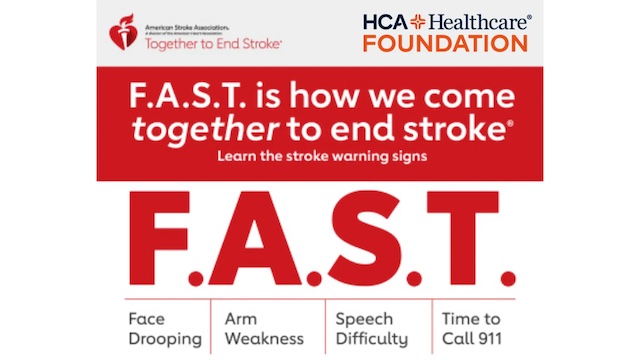 May is National Stroke Awareness Month, and along with education on strokes, doctors are looking for answers to why strokes are happening in younger patients.
May is National Stroke Awareness Month, and along with education on strokes, doctors are looking for answers to why strokes are happening in younger patients.
The American Stroke Association reports more strokes in adults under 50. One Houston doctor says he isn’t sure exactly why this is happening, but thinks our changes in lifestyles could be an answer.
“Researchers have studied the obesity, diabetes, high blood pressure, high cholesterol, cholesterol of younger people now, and the prevalence is going up.”
Dr. El-Ghanem also suggests neglecting healthcare or regular doctors visits during the pandemic could also be a reason that we’re seeing strokes in younger people, more often… (Continue to full article)
 Precision nutrition and the gut microbiome: the impact of blueberries
Precision nutrition and the gut microbiome: the impact of blueberries
In a recent study published in the Antioxidants journal, researchers explored the impacts of precision nutrition on gut microbiome variation.
Nutrition research funding is increasingly focused on precision nutrition, which has recently gained significant interest. Consuming fruits and vegetables is linked to a lower risk of developing chronic diseases such as obesity, cardiovascular disease, diabetes, and neurocognitive diseases.
Berry fruits, tea, and cocoa contain (poly)phenolic compounds identified as having potential health benefits among the thousands of phytochemicals studied… (Continue to full article)
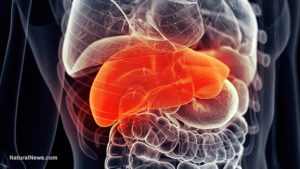 How does liver cancer affect the skin?
How does liver cancer affect the skin?
Liver cancer can destroy liver cells and block connections between the liver and other organs. As a result, liver cancer may prevent the liver from processing a substance called bilirubin. This causes a buildup of bilirubin within the blood, leading to jaundice.
This article looks at how liver cancer affects the skin. It will explain the connection between liver cancer and jaundice. It will also detail the relationship between jaundice and liver cancer stages, other liver cancer symptoms, and when to contact a doctor… (Continue to full article)
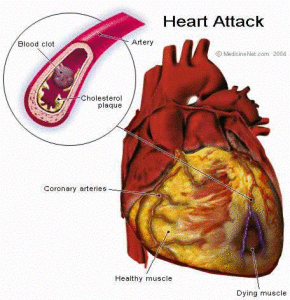 Doctors Reveal 5 Key Steps to Surviving a Heart Attack
Doctors Reveal 5 Key Steps to Surviving a Heart Attack
Be prepared. Here’s what to do if you or a loved one is having a heart attack.
Someone has a heart attack every 40 seconds in the U.S., according to the Centers for Disease Control and Prevention, making it a leading cause of death for Americans. Knowing what to do when one happens is essential. There are steps you can take to improve the chances of survival and potentially save a life when the unthinkable happens.
When you think “heart attack,” classic symptoms such as chest discomfort might first come to mind. But heart attacks can present differently in men and women, and in people with certain diseases, like diabetes… (Continue to full article)
 Healthy Food Alert #6: What Most People Don’t Know About Tomato
Healthy Food Alert #6: What Most People Don’t Know About Tomato
Tomatoes, also known as Solanum lycopersicum, are a popular fruit and a key ingredient in many dishes around the world.
They are rich in vitamins, minerals, and antioxidants that are essential for maintaining good health. Recent studies have shown that tomatoes can also help fight cancer and protect the heart.
The various health benefits of tomatoes and how they can be incorporated into your diet and how they can protect and boost your heart and help fight cancer and even other diseases.
Let’s start with how it fight cancer!… (Continue to full article)

As pictured above, having no energy, unintentionally losing weight, constant indigestion, difficulty swallowing, feeling sick and a lump at the top of your tummy are all warning signs and symptoms of stomach cancer
What are stage 1 stomach cancer symptoms?
Doctors use a staging system to describe the severity and spread of stomach cancer, with stage 1 being the earliest stage. Symptoms of stage 1 stomach cancer may include abdominal discomfort, indigestion, nausea, and bloating.
At this stage, doctors typically recommend treatment with surgery to remove all or part of the stomach. They may follow this with chemotherapy to kill any remaining cancer cells.
Because early detection is crucial when treating cancer, anyone with stomach cancer symptoms should seek medical attention as soon as possible. With prompt treatment, doctors can often successfully manage stage 1 stomach cancer… (Continue to full article)
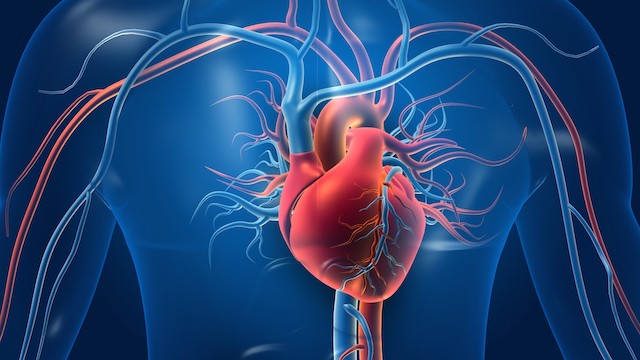 If a coronary artery has become narrowed, reducing healthy blood flow through your heart, your doctor may recommend that you have a stent placed in that artery.
If a coronary artery has become narrowed, reducing healthy blood flow through your heart, your doctor may recommend that you have a stent placed in that artery.

 When was the last time you had your blood pressure checked? All adults should have this simple test at least once a year.
When was the last time you had your blood pressure checked? All adults should have this simple test at least once a year. Each year, 1.5 million heart attacks occur in the United States resulting in over 500,000 deaths. Another common, though usually less fatal, cardiovascular problem is irregular heart beat. Though irregular heart beats are not as serious as heart attacks in most instances, they can lead to serious complications if not treated. Fortunately, nature has potent herbal solutions for each condition which will usually stop them in their tracks in short order.
Each year, 1.5 million heart attacks occur in the United States resulting in over 500,000 deaths. Another common, though usually less fatal, cardiovascular problem is irregular heart beat. Though irregular heart beats are not as serious as heart attacks in most instances, they can lead to serious complications if not treated. Fortunately, nature has potent herbal solutions for each condition which will usually stop them in their tracks in short order.  Epidemiological records suggest that Seattle’s drop in out-of-hospital cardiac arrest (OHCA) survival during the pandemic could be largely explained by indirect factors such as treatment delays, not acute SARS-CoV-2 infections.
Epidemiological records suggest that Seattle’s drop in out-of-hospital cardiac arrest (OHCA) survival during the pandemic could be largely explained by indirect factors such as treatment delays, not acute SARS-CoV-2 infections. May is National Stroke Awareness Month, and along with education on strokes, doctors are looking for answers to why strokes are happening in younger patients.
May is National Stroke Awareness Month, and along with education on strokes, doctors are looking for answers to why strokes are happening in younger patients. Precision nutrition and the gut microbiome: the impact of blueberries
Precision nutrition and the gut microbiome: the impact of blueberries How does liver cancer affect the skin?
How does liver cancer affect the skin? Doctors Reveal 5 Key Steps to Surviving a Heart Attack
Doctors Reveal 5 Key Steps to Surviving a Heart Attack Healthy Food Alert #6: What Most People Don’t Know About Tomato
Healthy Food Alert #6: What Most People Don’t Know About Tomato
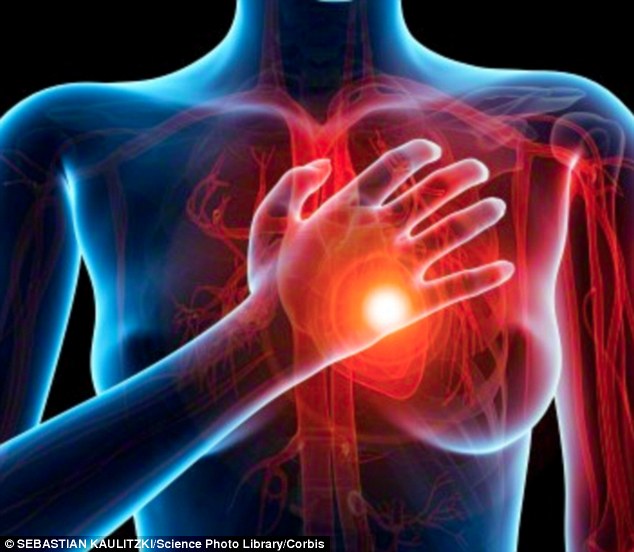 JACKSONVILLE, Fla. — All because its sugar-free does not mean it is good for you. A new Cleveland Clinic study found a link to a common artificial sweetener found in diet foods and an increased risk of heart attack and stroke.
JACKSONVILLE, Fla. — All because its sugar-free does not mean it is good for you. A new Cleveland Clinic study found a link to a common artificial sweetener found in diet foods and an increased risk of heart attack and stroke. Signs of nutrient deficiencies usually take weeks or months to appear, but this isn’t the case for water.
Signs of nutrient deficiencies usually take weeks or months to appear, but this isn’t the case for water. 


 It is well known now that most body cells are controlled by electromagnetic waves (EMWs). Scientists say that both sound and visible light are deciphered with different parts of the body’s electromagnetic system. Different cell types and organs also have different electromagnetic frequencies. This means that the electrical nature of the body runs on electromagnetic waves. The brain has even been proven to transmit information by frequency modulation (FM).
It is well known now that most body cells are controlled by electromagnetic waves (EMWs). Scientists say that both sound and visible light are deciphered with different parts of the body’s electromagnetic system. Different cell types and organs also have different electromagnetic frequencies. This means that the electrical nature of the body runs on electromagnetic waves. The brain has even been proven to transmit information by frequency modulation (FM).

 Dr Charles Hoffe MD, in his latest update of July 6, 2021 is reporting on the disturbing findings in his patients. He says the mRNA vaccines are plugging up thousands of tiny capillaries in the blood of those who took the ‘vaccine.’ Most will die in a few short years from heart failure.
Dr Charles Hoffe MD, in his latest update of July 6, 2021 is reporting on the disturbing findings in his patients. He says the mRNA vaccines are plugging up thousands of tiny capillaries in the blood of those who took the ‘vaccine.’ Most will die in a few short years from heart failure.